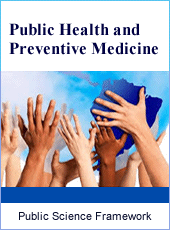Public Health and Preventive Medicine
Articles Information
Public Health and Preventive Medicine, Vol.2, No.5, Oct. 2016, Pub. Date: Nov. 21, 2016
A Study of Hospital Waste Management Practices at Two Tertiary Care Teaching Hospitals: What Are the Alternate Options in Hospitals of Developing Countries
Pages: 50-55 Views: 6132 Downloads: 1426
[01]
Sanwal Ali, BE Civil Engineering, Department NUST Institute of Civil Engineering (NICE), National University of Science & Technology, Islamabad, Pakistan.
[02]
Ishtiaq Ahmed, Department of Surgery, Al-nafees Medical College & Hospital, Islamabad, Pakistan.
Objective: To assess the biomedical waste management system in two major tertiary care hospitals and to look for the alternative measures which are cost- effective and reliable. Study design: A comparative study Place and duration: The study was conducted at two tertiary care teaching hospitals of Rawalpindi and Islamabad city from 27th April 2014 to 16th May 2014. Methodology: The data was collected through presentations given by hospital administration, direct interviews of hospital staff, questionnaires and direct observation methods. All wards, departments, and general areas of both hospitals were visited and methods of waste segregation, storage at ward or department level, internal transportation, dumping sites, external transportation, and on-site and off-site disposal were studied in detail. Special emphasis was given to seeing the method of waste storage Results: Both hospitals have no waste management committees, written protocols or SOPs for waste management. Both hospitals have no effective system in operation to handle and treat the infected or hazardous waste before disposal or transportation to final site. Neither hospital has its own incinerator or any alternative method of waste treatment at local level. The waste was transported for incineration twice a week but no record or SOP of this activity was maintained by both institutions. Conclusion: Disposal of biomedical waste is not practiced properly even in tertiary care hospitals in urban setup from site of generation to final disposal.
Bio Medical Waste Management (BMW), Dumping, Landfill, Hospitals
[01]
Hirani D P, Villaitramani K R, Kumbhar S J. Biomedical Waste: An Introduction to its Management. Int J of Innovative Res in Advanced Eng (IJIRAE). 2014; 1 (8): 82-7.
[02]
Singh H, Rehman R. Management of bio-medical waste: a review. Int J of Dental and Med Res. 2014; 1 (1): 12-19.
[03]
Mathur P, Patan S, Shobhawat S. Need of Biomedical Waste Management System in Hospitals - An Emerging issue - A Review. Curr World Environ 2012; 7 (1): 117-24.
[04]
Kumar S, Manjunatha M, Vijetha B, Pradeep PR. Biomedical Waste Management: a review. J Oral Health Comm Dent. 2012; 6 (3): 141-44.
[05]
Hossain M S, Santhanam A, Norulani NAN, Omar AKM. Clinical solid waste management practices and its impact on human health and environment – A review. Waste Manag. 2011; 31 (4): 754-66.
[06]
Hegde V, Kulkarni RD, Ajantha GS. Biomedical Waste Management. Journal of Oral and Maxillofacial Pathology 2007; 11 (1): 5-9.
[07]
Abah SO, Ohimain EI. Healthcare waste management in Nigeria: Acase study. J of Public Health and Epidemiol. 2011; 3 (3): 99-110.
[08]
Udofia EA, Nriagu J. Health-care Waste in Africa: A silent crisis? Glob. Health Perspect. 2013; 1 (1): 3-10.
[09]
Biswal S. Liquid biomedical waste management: An emerging concern for physicians. Muller J Med Sci Res 2013; 4: 99-106.
[10]
Squire JNT. Biomedical Pollutants in the Urban Environment and Implications for Public Health: A Case Study. ISRN Public Health. 2013. Website: [http://dx.doi.org/10.1155/2013/497490].
[11]
Ogbonna DN, Chindah A, Ubani N. Waste management options for health care wastes in Nigeria: A case study of Port Harcourt hospitals. Journal of Public Health and Epidemiology 2012; 4 (6): 156-69.
[12]
WHO (2014). Safe management of wastes from healthcare activities (2nd edn). Geneva, Switzerland: WHO Press, pp. 102, 136-138, 181-90.
[13]
Forastiere F, Badaloni C, de Hoogh K, von Kraus MK, Martuzzi M, Mitis F et al. Health impact assessment of waste management facilities in three European countries. Environmental Health. 2011, 10: 53.
[14]
Reinhart DR, McCreanor PT. Medical Waste Management: Where Does the Solid Waste Go? Lab Medicine. 2000; 31: 141-45.
[15]
Hassan MM, Ahmed SA, Rahman KA, Biswas TK. Pattern of medical waste management: existing scenario in Dhaka City, Bangladesh BMC Public Health 2008, 8: 36.
[16]
Hegde V, Kulkarni R D, Ajantha G S. Biomedical waste management. J Oral Maxillofac Pathol 2007; 11: 5-9.
[17]
Ajimotokan HA, Aremu SA. Case Study Evaluation of Health-Care Waste Challenges in Hospitals within Ilorin Metropolis. Civil Engineering Impact on National Development: 1st Annual Civil Engineering Conference, University of Ilorin, Nigeria, 26-28 August. 2009; 130-34.
[18]
Abor PA. Managing healthcare waste in Ghana: a comparative study of public and private hospitals. Int. J. Health Care Qual. Assur. 2013; 26 (4): 375-86.

ISSN Print: 2381-778X
ISSN Online: 2381-7798
Current Issue:
Vol. 7, Issue 3, September Submit a Manuscript Join Editorial Board Join Reviewer Team
ISSN Online: 2381-7798
Current Issue:
Vol. 7, Issue 3, September Submit a Manuscript Join Editorial Board Join Reviewer Team
| About This Journal |
| All Issues |
| Open Access |
| Indexing |
| Payment Information |
| Author Guidelines |
| Review Process |
| Publication Ethics |
| Editorial Board |
| Peer Reviewers |


